This Young Man’s Speeding Ticket Cost Him $1 Million
This Young Man’s Speeding Ticket Cost Him $1 Million
Europe can be called the land of speed thanks to the famous German Autobahn that allows you to put the pedal to the metal without fear of repercussions. Unfortunately, this is not an overall system; understandably, many nations have strict rules regarding speeding.
The European continent is at the top of the list with some of the heftiest fines. Their sophisticated traffic camera systems are hard to beat, and many drivers constantly find themselves on the wrong side of the law. So let’s take a look at today’s culprit, who got himself a hefty fine.
It's a Common Occurrence
Statistics indicate that the U.S. has a pretty generous system regarding speeding tickets. One in every six Americans is bound to receive a ticket someday. The accumulation of these tickets can spell trouble for the drivers since they can lose their licenses or get slapped with a big fine.
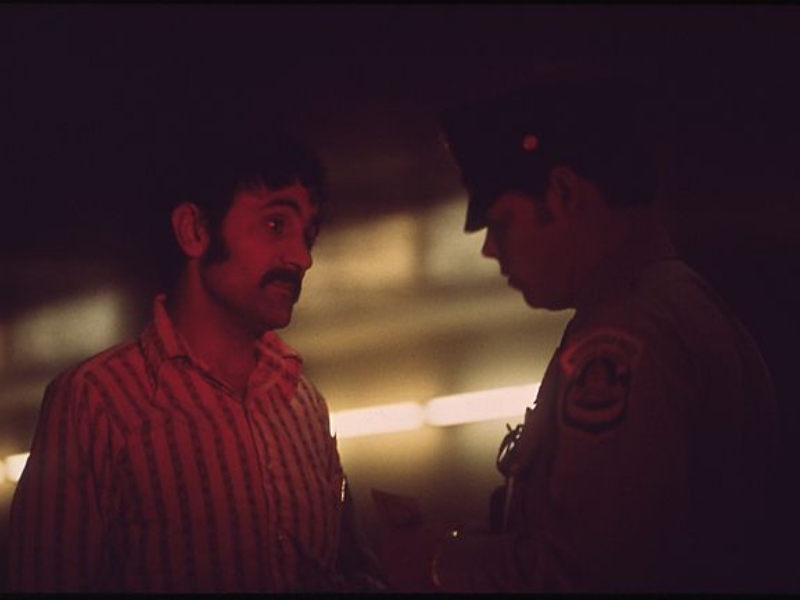
Source: Public domain / wikicommons
Surprisingly, despite the grim metric, most Americans have survived the system and escaped some significant penalties. Unfortunately, that cannot be said for this Swedish man who got the rough end of the stick
It's a Supercar, Not a Superhero
The Swiss was enjoying his sweet ride in Switzerland when things went wrong, and he was forced to part with an arm and a leg to get his keys back. You see, this guy was the proud owner of a supercar – a Mercedes SLS AMG.

Source: Wikicommons
It’s easy to get carried away when you find yourself behind the wheel of a powerful machine. One moment you are obeying traffic rules and speed limits, and the next thing you know, you are flying on the highway.
It's Just the Way It Is
We are not trying to validate speeding by supercar owners, but we want to show you how it’s possible. Those engine revs, pops, whistles, and crackles have an immense effect. It’s almost like witchcraft, and many people can attest to this.
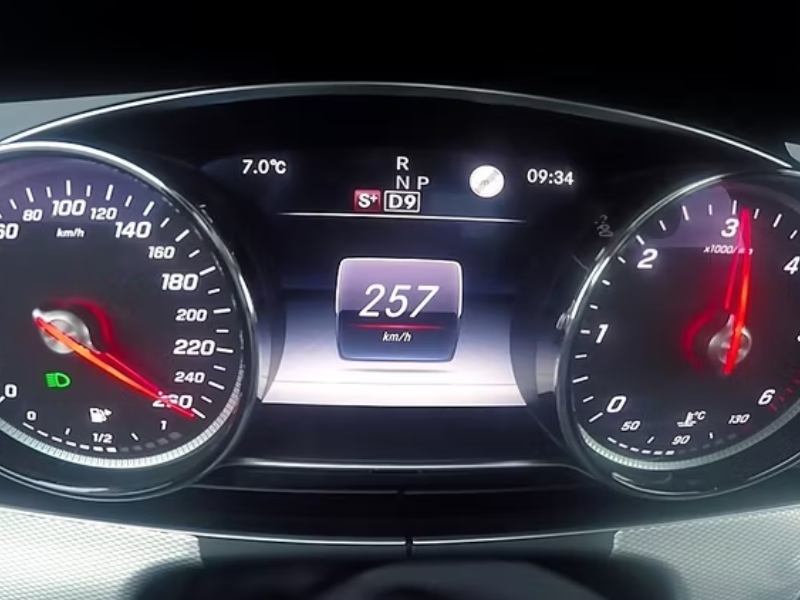
Source: Youtube
On the other hand, thanks to the fine quality of such vehicles, it’s sometimes hard to keep track of the speed through the windscreen and feel of the car. Everything is so cozy and comfortable that you feel like you’re cruising, yet you’re a jet on wheels.
The Land With No Limit
At the start of this story, we mentioned the German Autobahn, and we know some people might need help with its significance. This road is famous because it’s one of the few roads in the world that legally has no speed limit.

Source: Wikicommons
This means you can fly away as much as you want, with the only requirement being to give way and watch out for fellow motorists. It’s an excellent system that helps some people bow to the itch to speed and escape following the speed limit on other roads.
When in Rome, Do What...
As you might have deduced, Germany’s Autobahn is a rare situation. So, what about the other European nations? Of course, each country has its system, but Switzerland has one of the most interesting policies regarding speeding.
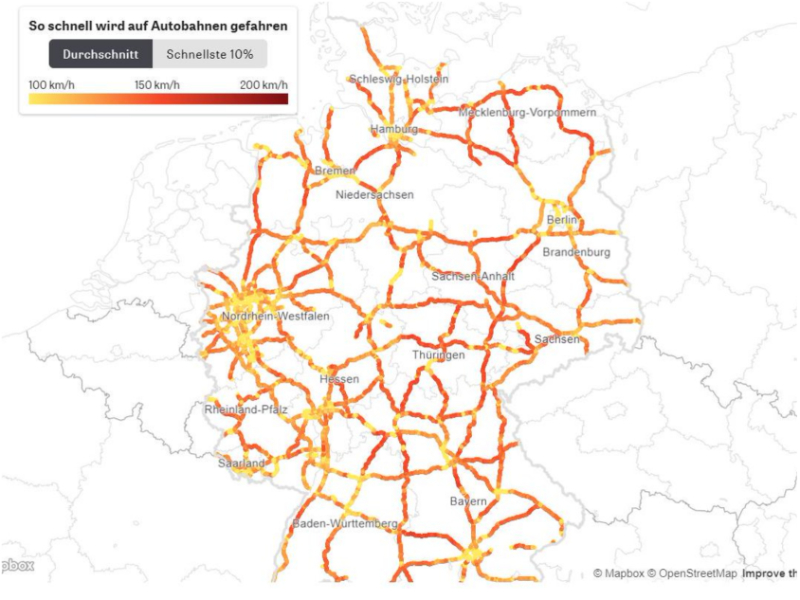
Source: Wikicommons
While most countries have a fixed penalty for driving offenses, Switzerland has no cap on the fines for speeding. Instead, each infraction has its merit and cost based on a calculated system that determines what you will pay. It is a neat trick that leaves many drivers gnashing their teeth.
He Got a Million Dollar Ticket
For this supercar-driving Swede, he found himself cursing his luck after the Swiss system found him guilty of speeding. His fine currently holds the record for the most expensive ticket in the world. How much, you ask? A whopping $1 million.
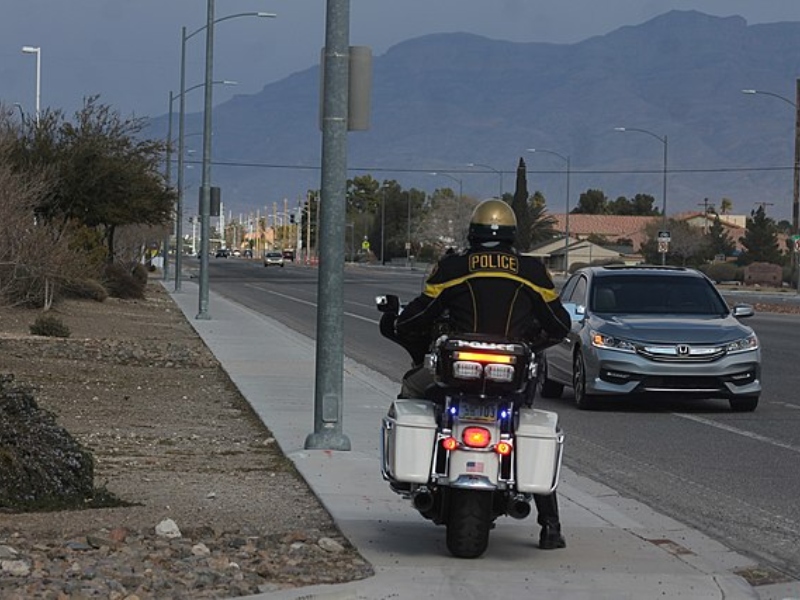
Source: Noah Wulf / wikicommons
Yes, the guy got a million-dollar ticket, and it wasn’t the lottery. It’s a pretty steep fine if you ask us, so there must be a valid reason for such a draconian fine. Let’s look at the evidence provided for us.
It's All About the Speed
Most countries’ laws regarding speeding are pretty straightforward; if you go over the limit, they check by how much and award fines based on the information. This means there are upper limits to the penalties, so it all comes down to mathematics.
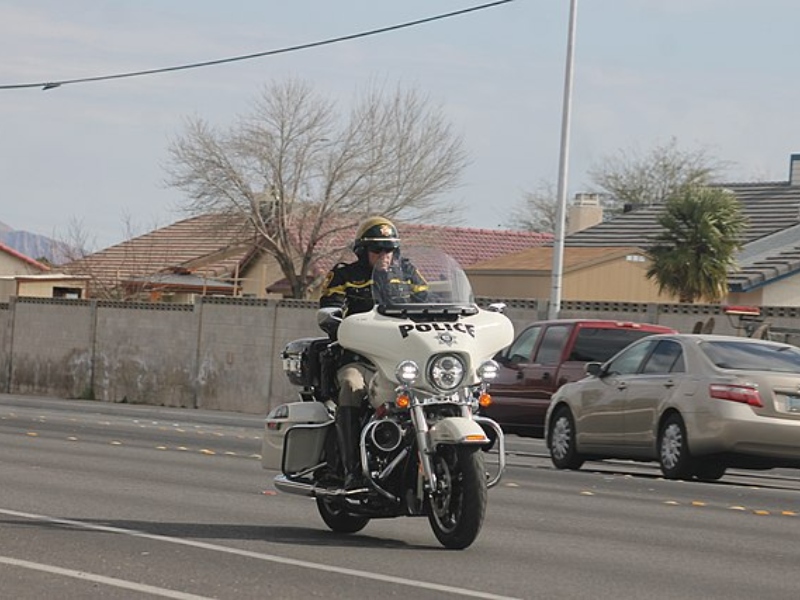
Source: Noah Wulf / wikicommons
Unfortunately, as fair as this system might seem, there’s one flaw. Some people can afford all the upper limits, so fining does not necessarily affect them. To make matters worse, most people are okay with exceeding the speed limit.
Finding a Level-Playing Field
With an increase in speeding among the wealthier population, most nations had to devise a logical way to tackle the menace. Yet, if the fines are too expensive, the vast majority will suffer; so what is the next best thing? Fining people based on their income.

Source: Matthew Daley / wikicommons
Several European countries decided it would be best to consider someone’s assets when arrested for speeding. If you are driving a standard automobile as an average individual, you are safe, but most supercar owners might not be so lucky.
A Different Fine Bracket
This new approach meant that different fine brackets would bring about a level playing field for all motorists. Additionally, there is no cap to the fines allowing the law to deal severe damage to someone who feels they can buy their way out of anything
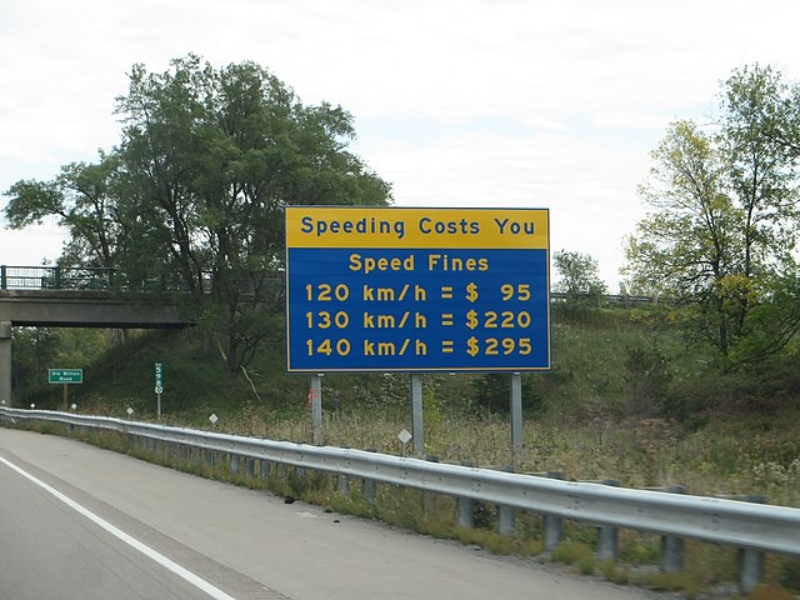
Source: Ken Lund / wikicommons
This is a fair approach to the speeding crisis as it discourages all motorists, including the rich, from flaunting traffic laws. In addition, the fines will now feel more like fines and less like convenience fees to those who can afford them.
The Swiss and the Finer Things in Life
The Swiss took this proposal seriously and merged the fine with the person’s tax bracket and speed recorded. No matter who you are or what you drive, your wealth determines your penalties. No one is exempt, as it all comes down to the driver, not the car.
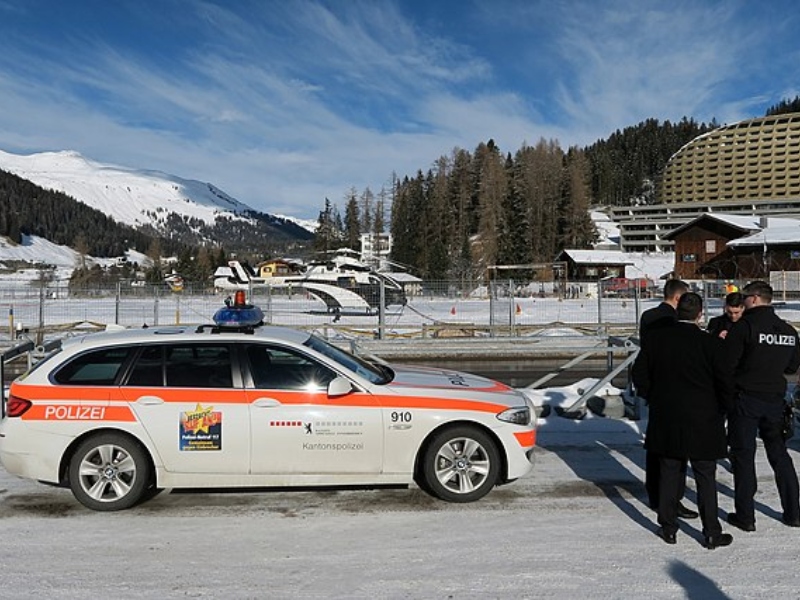
Source: Kecko / wikicommons
This uncapped system might be considered harsh, but it gets the job done. Public safety is the main agenda here, and there’s nothing more important. We must admit the Swiss did good here.
It's Not the First Time
Since the inception of this system in Europe, the continent has been collecting world records for speeding fines. However, before we talk about the current victim, you must know that the previous world record was held by the same nation.

Source: Alexandre Prévot / wikicommons
The man was going 85 MPH in a 35 MPH residential area which is pretty reckless if you ask us. Because of his millionaire status, the man and his red Ferrari netted a $290K fine. The driver accepted his mistake but claimed he had difficulty reining his stallion.
Another One Bites the Dust
In another instance in Rotterdam, someone was left dealing with significant financial woes after the authorities confiscated his $2.4 million ride. To make matters worse, he was not the one behind the wheel; his son was.
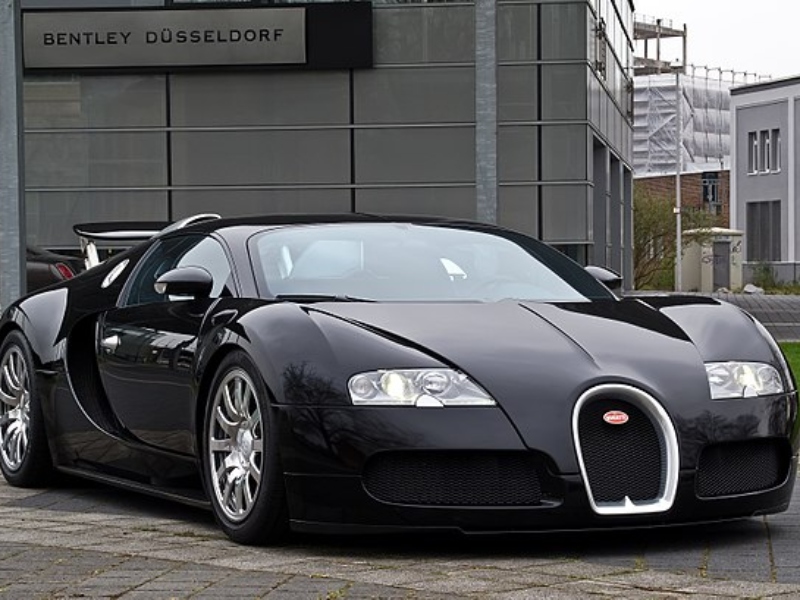
Source: M 93 / wikicommons
The young man decided to take his dad’s Bugatti Veyron out for a spin and hit 100 MPH in a 55 MPH zone, resulting in a ticket. Then, to add insult to injury, the legal system decided to seize the car as part of the punishment. So, this fellow won’t leave his room for a while.
The Man With the Record
As for our leading man, his story is so bonkers it’s easy to see why the law reacted so harshly. The middle-aged man was having too much fun behind his Mercedes SLS AMG and endangering the public.

Source: Wikicommons
The unnamed driver was hitting speeds of up to 180 MPH in a 72 MPH zone. Compared to everyone else in this article, this guy takes the cake. We have yet to learn what was happening or why he’d go that fast in a stringent country, but alas!
Time to Play the Piper
Things didn’t go too well when the law caught up with the driver, and we’d be surprised if it did. This is one of those cases where the culprit deserves the book getting thrown at them and this offender got just that. In fact, after this case, we doubt the man will ever attempt to drive a smidge over the speed limit.

Source: Public domain / wikicommons
For starters, he was fined 650K euros which is roughly a million dollars, give or take a few thousand. As expensive as that is, there’s more.
Borrowing a Leaf From Past Experiences
Remember the Bugatti Veyron chap? The punishment was so effective the Swiss officials decided it was the best way to deal with the speed freaks. So the middle-aged speedster was forced to part with his Mercedes SLS AMG as part of his punishment.

Source: Navigator84 / wikicommons
This impound meant the fellow had to fork extra cash to get his car back after paying such an exorbitant fee. We doubt his accountant smiled after he got the call to wire the funds. So what went down?
Dusting the Quarter Mile
According to official police documents on the case, the driver hit the gas for almost a quarter mile before stopping. Unfortunately, it was too late by then, and the speed cameras on the A12 had caught him.

Source: Cameramann / wikicommons
Unlike some other nations, the Swiss police are pretty patient, and they tracked the speeding offender before apprehending him at a rest stop. They tailed him safely for a bit so as not to raise suspicion. If they didn’t, a police chase might have ensued, further endangering the public.
It Was a New Car
It seems the driver was having a bad day because he had just picked up the ride from Germany and was taking it home for the first time. He had probably decided to test out its limits at his favorite blind spot, but that was not meant to be.

Source: M 93 / wikicommons
A new traffic radar had just been installed, which had more accurate readings. Had the old radars been there, they likely recorded him at 12 MPH instead of the 185 MPH he was traveling.
He Was a Cooperative Fellow
The driver didn’t fight the charge when the officers caught up with him. Instead, he was very cooperative and was released shortly after questioning. He informed the police that his speedometer was faulty, so it would have been difficult for him to notice he was going over the speed limit.

Source: Siuta Ika / wikicommons
This was an acceptable reason to land in trouble, but it wouldn’t have been as bad as it turned out to be had it been true. A faulty speedometer fine is still expensive but significantly less than what he got in the end.
The Financial Breakdown of Speed
If the speedometer was faulty, the highest possible fine could have been impoundment fees followed by 300 days of penalties. The fines would have been quite steep at $4000 daily.
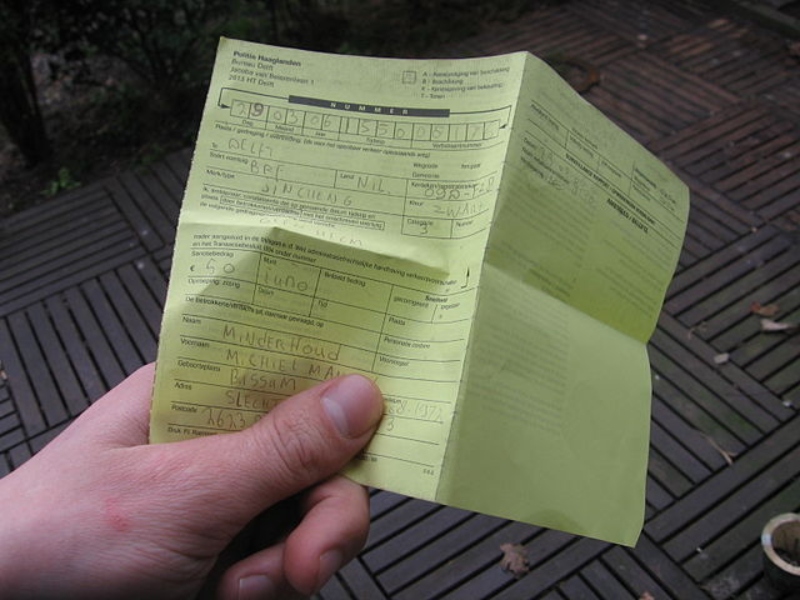
Source: M.Minderhoud / wikicommons
It would have been an expensive sentence but nothing close to the million-dollar fine he finally received. Maybe the court and the system figured this was a repeat offender who had cracked the code and was only caught through sheer luck. Surprisingly, the driver still has more records under his belt.
A Man of Many Records
To date, the Swedish man still holds the record for the most expensive fine, but in the country, he has more. Moreover, according to police officers, he holds the official description for the fastest speed in the nation. These are some pretty neat bragging rights, but we doubt the price is worth it.
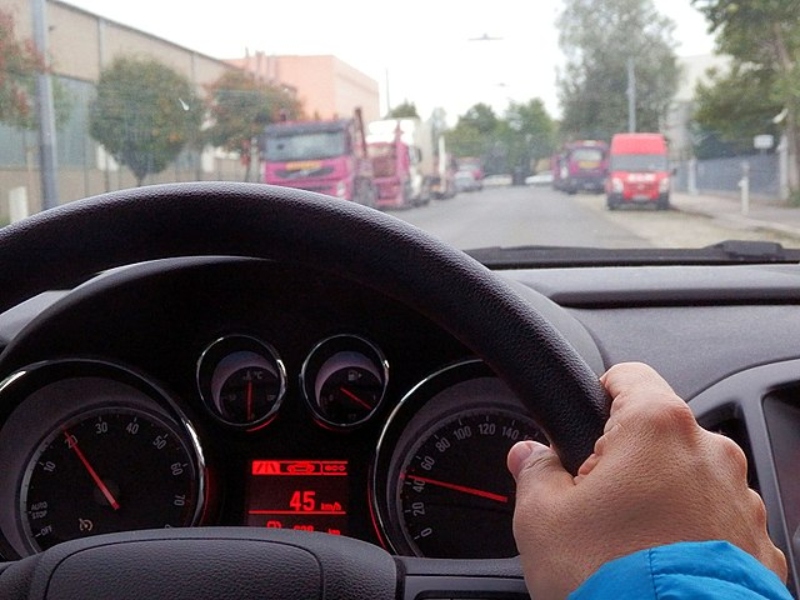
Source: MikeRun / wikicommons
With the fines attached, we doubt anyone would want to beat the driver’s speeding record intentionally. That being said, we can’t help but want to look into the world’s first speeding ticket.
The Law That Changed Driving
In the U.S. alone, 41 million speeding tickets are issued yearly, which equates to one ticket per second. This means that the system is pretty compelling, and we have to wonder how the first person reacted to receiving one of these badges of pain.
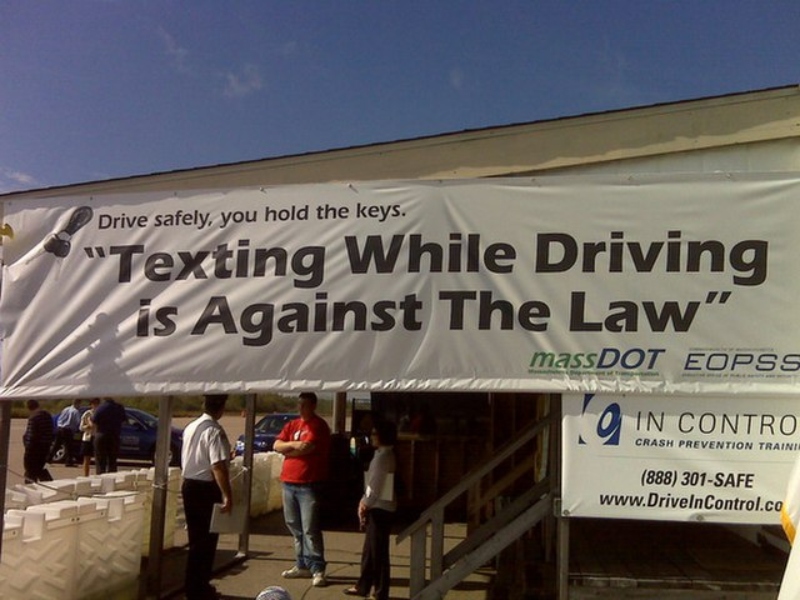
Source: MassDOT / wikicommons
The debate surrounding this story is heavy because people have different versions of events and an understanding of the term “ticket.” This is because the system had road safety guidelines, but physical tickets were not issued until later on. Even so, people still collected fines.
Ticket or No Ticket
Many people today consider speeding tickets the main guarantee of a speeding fine. This is why there is a common misconception that speed limits were brought about by the tickets. However, this couldn’t be further from the truth because the authorities have always frowned upon speeding.
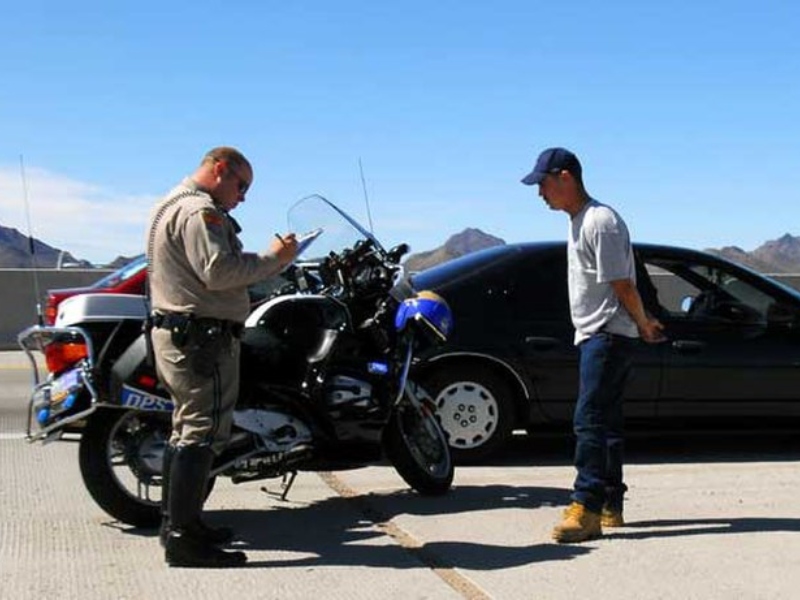
Source: Jeff dean / wikicommons
Without overthinking about paper tickets, let’s trace the first fine ever, awarded to a speeding motorist. So buckle up; it’s time to take a trip down history lane—at least the fun side of things.
The First Fine Ever
In 1896, a man named Walter Arnold was awarded a speeding fine for traveling six MPH over the speed limit. The man was going so fast that time looked like it stood still. Some might even argue that if you touched his car, you’d get the same powers.

Source: Sven Teschke / wikicommons
How fast? Let’s just say the man was going four times the speed limit, which is probably extreme compared to the Swede speedster. If anyone hacks that today, we doubt they’d ever be let back on the roads, but Arnold just got a fine.
The Story Even Gets Funnier
In the 19th century, the speed limit was pretty conservative at only two MPH. Yes, you read that correctly, two MPH! Interestingly, despite such a wacky limit, you still had someone flag ahead of you to warn pedestrians and other motorists of your approach.
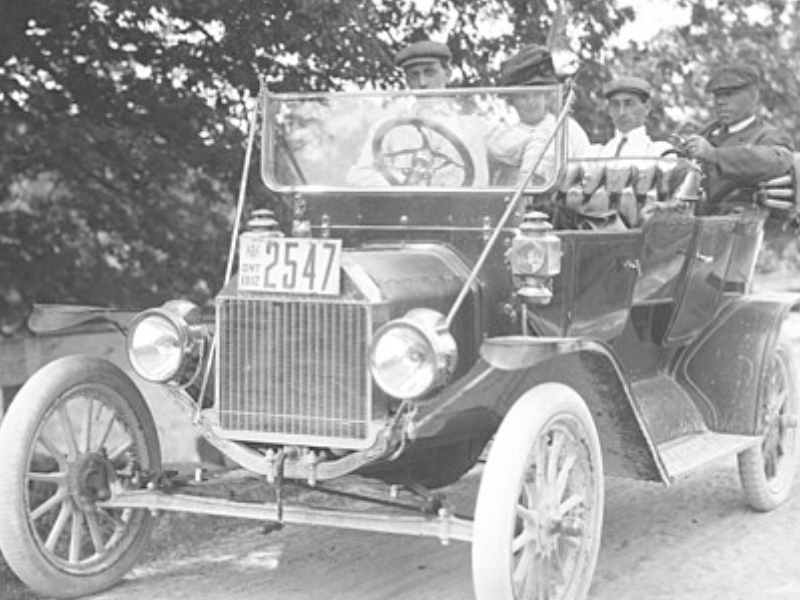
Source: Community Archives / wikicommons
This is why, when Arnold whizzed past the police constable at a staggering eight MPH, the officer knew he had to give chase. The boy in blue hopped on his bicycle, zoomed after Arnold, and caught up with him before disappearing into the horizon.
It Was a Different Era
The average cycling speed is about 12-18 MPH, so you might think the chase was relatively fast, but that wasn’t the case. Instead, it was a thrilling competition that lasted five miles before Arnold was caught in his “supercar.” The driver was sent to the judge and forced to pay an exorbitant fine of one shilling.
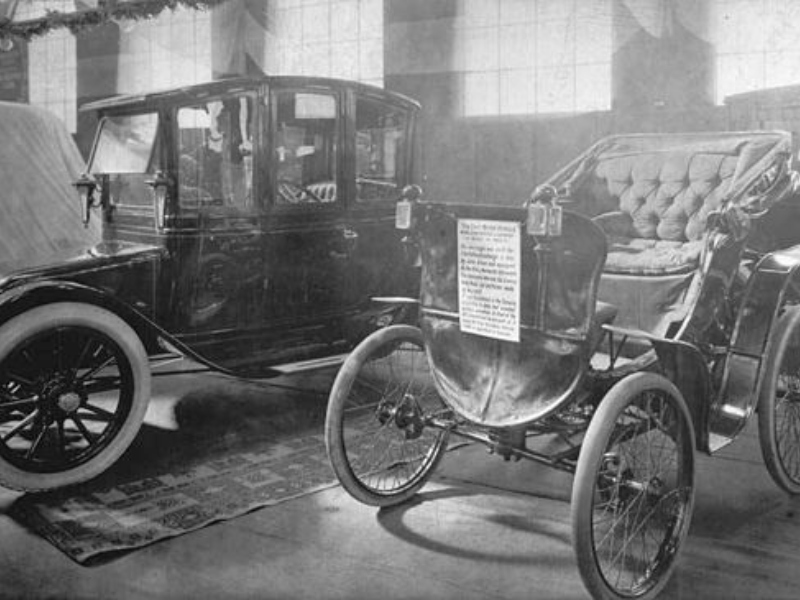
Source: William James / wikicommons
This whole debacle gets even funnier when you realize the speed limit was lower than the average human walking speed, which is around 3-4 MPH. This makes us wonder, wouldn’t it be better to walk?
Every Cloud Has a Silver Lining
Surprisingly, despite coughing up some cash, this case was a blessing in disguise for Arnold’s business. The man was a pioneer car dealer who sold Benz classic cars imported from Germany. This was before the company officially became known as Mercedes-Benz.

Source: Alf van Beem / wikicommons
Arnold’s car was a custom modification known as Arnold Motor Carriage, and thanks to its exploits on the road, the car was an instant favorite. That said, this is the story of the first fine, so what of the first ticket?
From Fines to Tickets
In Dayton, Ohio, Mr. Harry Myers was receiving some nasty paperwork after going over the speed limit. This time, Harry was going 12 MPH in an eight MPH zone. The speed limits were still ridiculous, but to be fair, they were making strides. It was the early 20th century, after all.
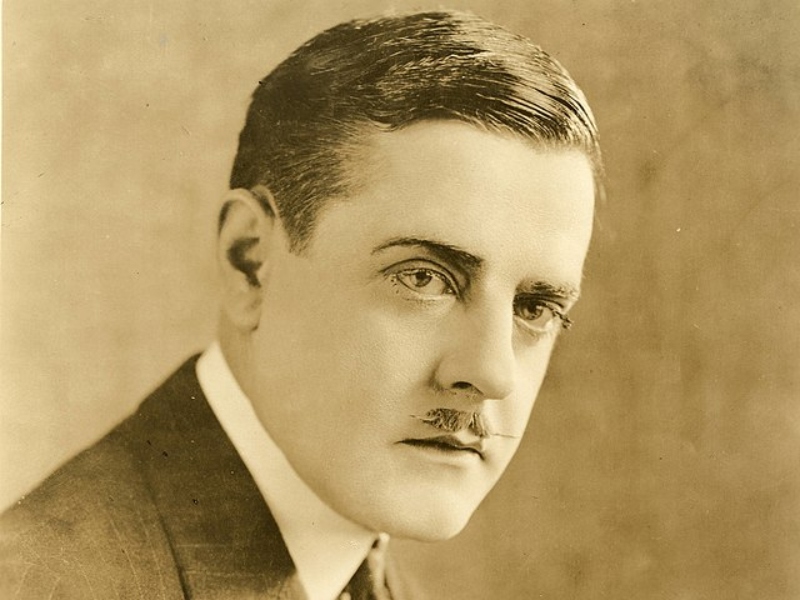
Source: Freulich / wikicommons
Despite the new changes, one thing was still constant – officers on bikes. Harry was chased down by a cycling officer, overtaken, stopped, and written down for the first time in history.
Grab Me Those Bicycles
Cars aside, can we take the time to marvel at these officers and their cycling prowess? Of course, technology in the automobile department has come a long way since then, but you have to hand it to them. These guys used to stop speeding offenses on bicycles!
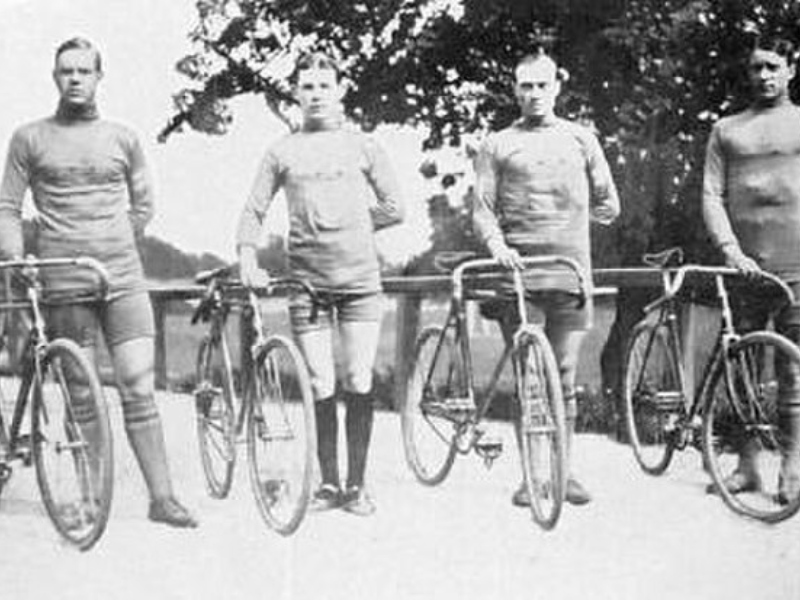
Source: Public domain / wikicommons
We have powerful motorbikes to do the dirty work these days, but we doubt it’s as fun as stopping a whole car on an engineless machine. The bicycle tech may need more work to return to the good old days.
There You Have It
So, that ends our history lesson. Hopefully, you found these stories as amusing as we did. We may need to get a feature film on these shenanigans because we’d pay good money to see a bicycle and a classic car rough it out on some murram.

Source: Unknown author / wikicommons
That said, speeding on public roads is highly discouraged. So many lives have been lost, and it’s time we did better. Please don’t do it for the fines, do it for you.
